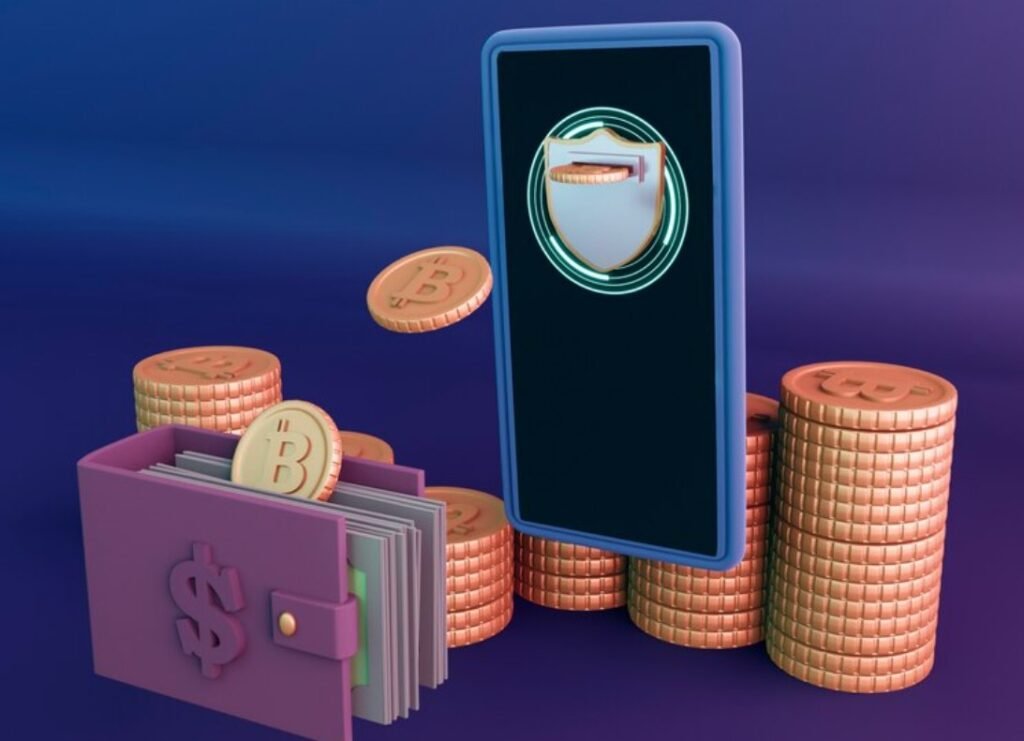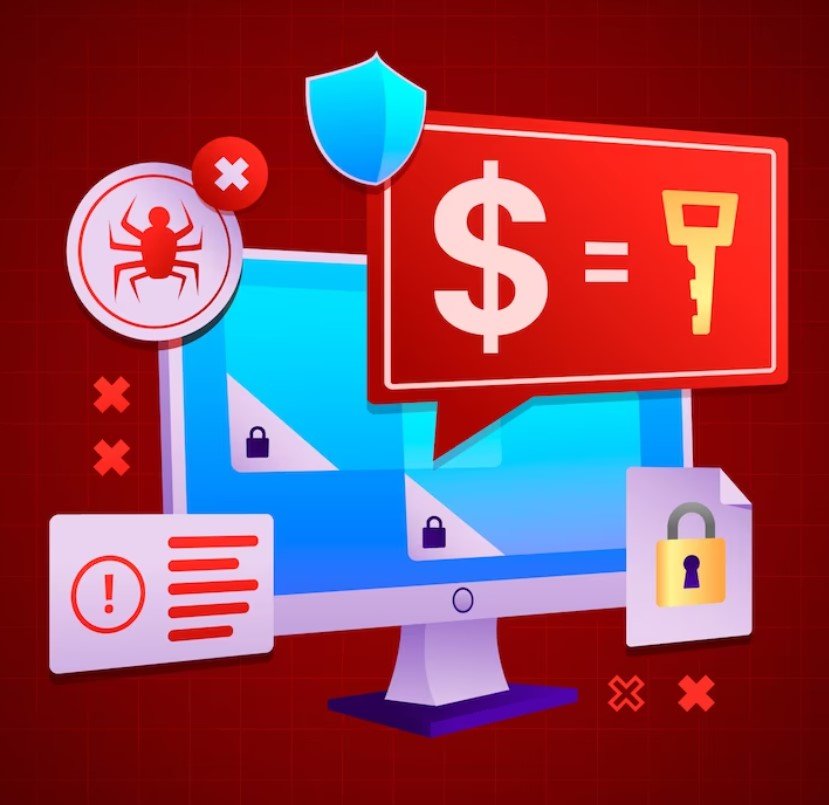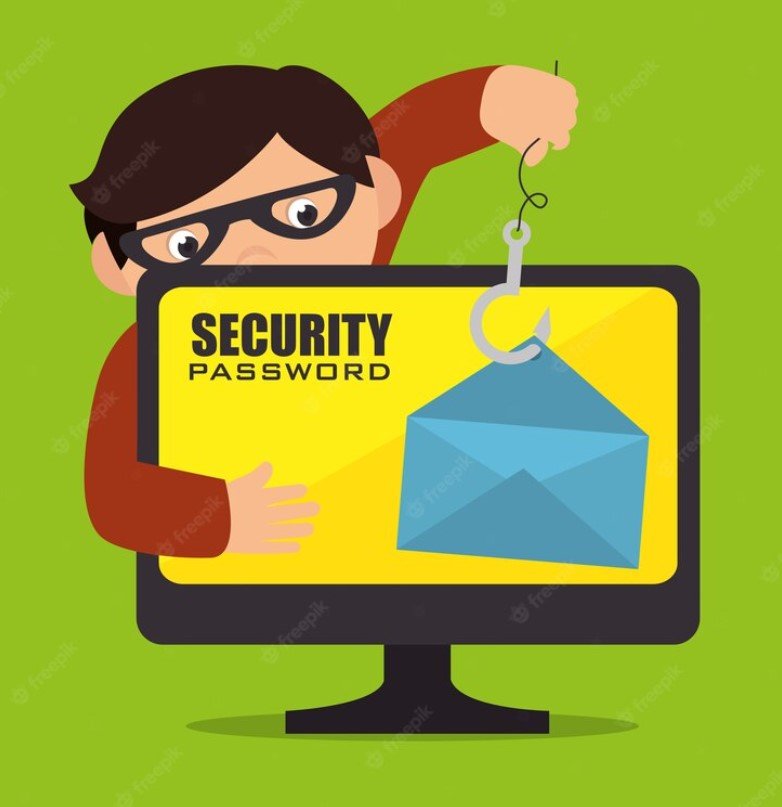In the world of cryptocurrency, wallets are a crucial element of protecting your wealth. A cryptocurrency wallet is a digital storage tool that allows you to store, send, and receive digital currency. It’s an essential part of the cryptocurrency ecosystem, as it allows users to store their digital assets securely and transfer them to other users. As cryptocurrency is a decentralized asset, it is important to secure your wallet and your funds.
The importance of protecting your cryptocurrency assets cannot be overstated. Cryptocurrency transactions are irreversible, meaning that if your wallet is compromised, there is no way to get your funds back. That’s why it is essential to take the necessary security measures to protect your wallet. This includes using strong passwords, enabling two-factor authentication, and keeping your wallet software up-to-date. Additionally, it is important to always back up your wallet, as this can help you recover your funds in the event of a hack.

Types of Cryptocurrency Wallets
Hot Wallets (online):
Hot wallets are a type of cryptocurrency wallet that is constantly connected to the internet. This type of wallet is typically used for frequently and quickly exchanging and trading cryptocurrencies. Hot wallets are usually easy to use and have user-friendly interfaces. They are also widely available and accessible from anywhere with an internet connection. However, the downside of hot wallets is that they are vulnerable to online theft, viruses, and hacking, as they are constantly connected to the internet.
Cold Wallets (offline):
Cold wallets are the opposite of hot wallets. This type of cryptocurrency wallet is not connected to the internet and, therefore, is more secure. Cold wallets are usually stored in a USB, a hard drive, or a paper wallet. Cold wallets are not vulnerable to online theft and are less likely to be hacked. However, they can be difficult to use and may require more technical knowledge than other types of wallets.
Paper Wallets:
A paper wallet is a type of cryptocurrency wallet that stores private keys and public keys on a piece of paper. This type of wallet is one of the most secure, as it is not connected to the internet and is not vulnerable to online theft. However, paper wallets are often difficult to use and require a printer and other materials. They are also vulnerable to physical theft and damage.
Hardware Wallets:
A hardware wallet is a type of cryptocurrency wallet that stores private keys and public keys on a physical device, such as a USB drive or a hard drive. This type of wallet is one of the most secure, as it is not connected to the internet and is not vulnerable to online theft. Hardware wallets are also usually user-friendly and easy to use. However, they are vulnerable to physical theft and damage.
Mobile Wallets:
Mobile wallets are a type of cryptocurrency wallet that is designed for mobile devices, such as smartphones and tablets. This type of wallet is often user-friendly and easy to use. It is also widely available and accessible from anywhere with an internet connection. However, the downside of mobile wallets is that they are vulnerable to online theft, viruses, and hacking, as they are constantly connected to the internet.

Cryptocurrency Security Measures
Two-factor authentication (2FA):
Two-factor authentication is a security measure used to protect cryptocurrency accounts from malicious actors. It requires users to provide two different pieces of evidence in order to gain access to their account. This usually involves entering a code sent to the user’s email or mobile phone. 2FA provides an additional layer of security in addition to a username and password combination. This helps to ensure that only the owner of the account can access it.
Password management:
It is important to create strong, unique passwords for each cryptocurrency account. Password managers can help users manage and store their passwords in a secure manner. This helps to ensure that their passwords cannot be easily guessed or accessed by malicious actors. Additionally, using two-factor authentication in combination with password management can provide additional layers of security for cryptocurrency accounts.
Multisignature wallets:
Multisignature wallets require more than one private key to sign off on a transaction. This means that more than one person must approve the transaction before it is completed. This is a useful security measure for businesses, as it ensures that multiple people must agree on a transaction before it is completed. This helps to prevent fraudulent activities from occurring.
Biometric authentication:
Biometric authentication is a method of verifying a user’s identity using biometric data, such as a fingerprint or voice recognition. This provides an additional layer of security for cryptocurrency accounts, as it is impossible to replicate a biometric data. Additionally, biometric authentication is more convenient than other authentication methods, as it does not require users to remember passwords or codes.
Seed phrases:
Seed phrases are a series of random words used as a backup plan for cryptocurrency accounts. They allow users to restore their accounts even if they lose access to their keys or passwords. Seed phrases are typically 12 to 24 words long and are generated using a secure random number generator. They provide an additional layer of security for cryptocurrency accounts, as they can be used to regain access to accounts in the event of a data breach or other emergency.
Risks and Threats to Cryptocurrency Security
Phishing Scams
One of the most common risks to cryptocurrency security is phishing scams. Phishing scams are attempts by malicious actors to trick users into giving up sensitive information, such as passwords, by posing as a legitimate website or service. Phishing scams often use deceptive emails or messages, which appear to come from a legitimate source, or even a trusted contact. It is important to be aware of the signs of a phishing scam and to never provide sensitive information to an untrusted source.

Malware Attacks
Malware attacks are another common risk to cryptocurrency security. Malware is malicious software that is designed to secretly steal information or disrupt computer systems. In the case of cryptocurrency, malware can be used to steal private keys and gain access to user wallets. It is important to protect yourself against malware by using a reliable antivirus program and avoiding suspicious downloads or websites.
Social Engineering Attacks
Social engineering attacks are another risk to cryptocurrency security. These attacks involve manipulating people into giving up sensitive information, such as passwords or private keys. Social engineering attacks can take many forms, including phishing scams, vishing (voice phishing), and smishing (SMS phishing). It is important to be aware of the signs of a social engineering attack and never give out sensitive information to an untrusted source.
Cryptojacking
Cryptojacking is another risk to cryptocurrency security. Cryptojacking involves using malicious code to steal computing power from a user’s device in order to mine cryptocurrency. Cryptojacking can be difficult to detect, as it often runs in the background without the user’s knowledge. It is important to be aware of the signs of cryptojacking, such as high CPU usage or unexplained website redirects, and to take steps to protect yourself against it.
Ponzi Schemes and Scams
Ponzi schemes and scams are another risk to cryptocurrency security. Ponzi schemes are fraudulent investment schemes that promise high returns with little risk. They often involve recruiting new investors to pay off existing investors, until the scheme collapses and the investors lose their money. It is important to be aware of the signs of a Ponzi scheme and to never invest in anything that appears too good to be true.
Tips for Safe Cryptocurrency Storage
Choosing a reliable wallet provider:
When it comes to cryptocurrency storage, the first step is to find a secure wallet provider. It is important to choose a reputable provider that is well-known in the industry and has a good track record of keeping funds safe. Look for companies that offer good customer service and have a wide range of features such as multi-signature support and cold storage.
Keeping software and firmware up-to-date:
It is also important to make sure that the wallet provider’s software and firmware are up-to-date. This ensures that any security vulnerabilities are patched, and your funds remain safe. It is also a good idea to enable two-factor authentication or other advanced security measures if available.
Keeping backups of your wallet and seed phrases:
It is essential to keep backups of your wallet and seed phrases. This will ensure that you can recover your funds in case of an emergency. It is also recommended to store the backups in multiple secure locations, such as a USB drive or another device.
Using strong passwords and 2FA:
To protect your wallet and funds, it is important to use strong passwords and two-factor authentication (2FA). It is also a good idea to use a password manager to store and generate strong passwords. This will make it very difficult for hackers to gain access to your funds.

Storing your cryptocurrency assets offline:
The best way to keep your cryptocurrency assets safe is to store them offline. This could be done using a hardware wallet or paper wallet. Both of these methods are secure and are not connected to the internet, making them much less vulnerable to hacks and other security threats.
Conclusion
In conclusion, protecting your wealth in the form of cryptocurrency is a critical step for anyone who wishes to invest in this space. The use of cryptocurrency wallets and security measures such as two-factor authentication, strong passwords, and cold storage are essential for ensuring that your assets remain safe and secure. Additionally, it is important to stay informed about the latest developments in cryptocurrency security as these can be used to create more secure and efficient systems for storing and trading cryptocurrency.
Ultimately, investing in cryptocurrency is a great way to diversify your portfolio and hedge against inflation – but only if you take the proper steps to ensure that your assets are secure. By following the security measures outlined in this article, you can maximize the security of your cryptocurrency holdings while still enjoying all the benefits that come with investing in this new asset class. With the right preparation and knowledge, you can confidently protect your wealth and reap the rewards of your investment.
FAQ – The Importance of Cryptocurrency Wallets and Security Measures
1. What is a cryptocurrency wallet?
Answer: A cryptocurrency wallet is a digital wallet that stores private and public keys and interacts with various blockchain networks to enable users to store, send and receive digital currency.
2. How do I secure my cryptocurrency wallet?
Answer: You can secure your cryptocurrency wallet by setting up a strong password, using two-factor authentication, enabling multifactor authentication, and using a reliable platform.
3. What is the importance of cryptocurrency wallets?
Answer: Cryptocurrency wallets are important for securely storing, sending, and receiving digital currency. They provide a secure way to store your digital assets and to use them for transactions.
4. What are the different types of cryptocurrency wallets?
Answer: There are several types of cryptocurrency wallets, including hot wallets, cold wallets, hardware wallets, paper wallets, and web wallets.
5. What is the difference between a hot wallet and a cold wallet?
Answer: A hot wallet is a digital wallet connected to the internet, while a cold wallet is a hardware wallet that stores digital assets offline.
6. How do I choose the right cryptocurrency wallet?
Answer: You should consider the security features, user-friendliness, and cost when choosing the right cryptocurrency wallet.
7. How can I protect my cryptocurrency wallet from hackers?
Answer: You can protect your cryptocurrency wallet from hackers by setting a strong password, using two-factor authentication, enabling multifactor authentication, and using a reliable platform.
8. What are the most secure cryptocurrency wallets?
Answer: The most secure cryptocurrency wallets are hardware wallets, such as the Ledger Nano S, Trezor, and KeepKey.
9. What is the best way to store my cryptocurrency?
Answer: The best way to store your cryptocurrency is to use a hardware wallet, such as the Ledger Nano S, Trezor, or KeepKey.
10. How do I backup my cryptocurrency wallet?
Answer: You can backup your cryptocurrency wallet by creating a backup phrase and storing it in a safe place. You can also use a cloud storage service, such as Google Drive or Dropbox.
